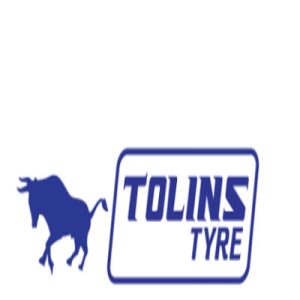
Tolins Tyres IPO Closed
Already have an account? Apply now
Schedule of Tolins Tyres
| Issue open date | 09 Sep 2024 |
| Issue close date | 11 Sep 2024 |
| UPI mandate deadline | 11 Sep 2024 (5 PM) |
| Allotment finalization | 12 Sep 2024 |
| Refund initiation | 13 Sep 2024 |
| Share credit | 13 Sep 2024 |
| Listing date | 16 Sep 2024 |
| Mandate end date | 26 Sep 2024 |
| Lock-in end date for anchor investors (50%) | 12 Oct 2024 |
| Lock-in end date for anchor investors (remaining) | 11 Dec 2024 |
Note: The schedule is tentative. The anchor lock-in period ends 30 days after the actual allotment date for 50% of the shares and 90 days after for the remaining portion. The allotment status can be checked on the registrar's website and the exchange website.
About Tolins Tyres
Incorporated in 2003, Tolins Tyres is primarily engaged in manufacturing bias tyres for a comprehensive array of vehicles (including light commercial, agricultural, and two/three-wheeler vehicles) and pre-cured tread rubber and is also involved in manufacturing ancillary products like bonding gum, vulcanizing solution, tyre flaps, and tubes and caters to all three segments of market viz. Original equipment manufacturers (OEMs) like, Marangoni GRP, Kerala Agro Machinery Corporation Ltd (KAMCO), Redlands Motors, Tyre Grip, etc, Domestic sales and exports to 40 foreign countries, including the Middle East, East Africa, Jordan, Kenya, and Egypt. As of March 31, 2024, The company has a total of 8 depots and 3,737 dealers across the country and operates from three manufacturing facilities out of which two are located at Mattoor in Kalady, Kerala, and the third one is located in Al Hamra Industrial Zone in Ras Al Khaimah in UAE.
Financials of Tolins Tyres
Issue size
| Funds Raised in the IPO | Amount |
| Overall | ₹203 crores |
| Fresh Issue | ₹200 crores |
| Offer for sale | ₹3 crores |
Utilisation of proceeds
| Purpose | INR crores (%) |
| Debt reduction | 85.12 (42.56%) |
| Investment in subsidiary Tolin Rubbers Private Limited | 23.15 (11.58%) |
| Working capital requirements | 83 (41.5%) |
| General corporate purposes | 8.72 (4.36%) |
Strengths
- The company’s two manufacturing facilities in Kalady, Kerala are located in a strategically advantageous area as the Inland Container Depot and seaport is approximately 40 km and Kochi Airport, which is an international airport connected to worldwide destinations is merely 6 km from its manufacturing facilities.
- It is a profitable growing company in the retreading and tyre manufacturing space and its Profit after Tax has grown at a CAGR of 541.98% between Fiscal 2022 (on a standalone basis) and Fiscal 2024 (on a consolidated basis).
- It has a total of 163 stock-keeping units (SKU) in the tyre category and 1,003 SKUs in tread rubber, this catalogue has been built over the decades to fit in with market requirements and to fulfil customer requirements.
- It has been accredited with various quality certifications such as ISO 9001:2015, and IATF 16949:2016 issued by UK Certifications. The Company’s (tyre plant) is BIS (ISI certification required for tyres) approved and almost all required sizes have BIS product certification, which is mandatory for manufacturing and marketing tyres in India.
Risks
- Nearly 72% of the tyre products are sold to dealers & distributors. The company does not enter into contractual agreements with its distributors and dealers and any failure to maintain the relationship with these dealers & distributors or find competent replacements could affect the sales of its products.
- The company faces competition from both domestic and multinational corporations. Failure to compete effectively could result in the loss of customers and market share.
- The company has substantial working capital expenditure and may require additional financing to meet those requirements, adversely affecting the financial condition.
- The sale of its products is concentrated majorly in Kerala accounting for nearly 46.71%, 66.91%, and 63.33% of the revenue from operations, respectively in the last years. Any adverse developments affecting the operations in the region could negatively impact the business operations.
- The company is dependent on contract labour and any disruption to the supply of such labour for its manufacturing facilities or inability to control the composition and cost of the contract labour could adversely affect the business.